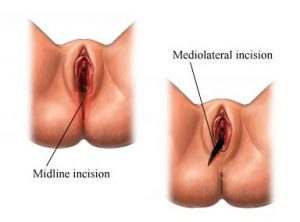Childbirth is a unique moment in life and of great importance for all women. Throughout pregnancy, plans are made for how this moment will be and what options exist to make it smoother. It is a mix of fear and anxiety that are natural for all women who are going through this experience. However, such an important moment can become a real nightmare depending on the type of treatment a woman receives. Obstetric violence is a type of violence and abuse suffered by women during pregnancy, at the time of birth, or during the postpartum period. This violence can be either psychological or physical, causing traumatic damage to women and turning such memorable moments as childbirth into something to be forgotten. Unnecessary or forced physical maneuvers, unnecessary use of instruments like forceps, excessive vaginal exams performed by different professionals, forced breaking of the amniotic sac, as well as offensive and humiliating verbal statements are examples of obstetric violence. Studies show that 1 in every 4 pregnant women has already experienced obstetric violence. This is a high number when we consider how many women give birth every day in our country. That is why this is an issue that must indeed be talked about and discussed, as it is an act of dehumanization and violation of rights that leaves lasting marks on women. 
Common Practices in Obstetric Violence
As previously mentioned, obstetric violence is characterized not only by physical violence but also psychological. Therefore, phrases involving name-calling, shouting, blackmail, or even threats aiming to humiliate the condition of the laboring woman are also considered obstetric violence. Some of the most common physical practices within obstetric violence include the unnecessary practice of episiotomy and uterine fundal pressure, also known as the Kristeller maneuver. Episiotomy consists of a cut made in the perineal area to widen the birth canal, causing lacerations in the region. This practice should be used only when justified, but it is known that many professionals make episiotomy a routine practice during all deliveries, causing mutilation of the vagina. 
What Are the Consequences and Impacts?
Obstetric violence is a serious problem that causes drastic effects on a woman’s physical and emotional health. It was only from the 2000s onwards that this topic began to be discussed more in Brazil. Because of this, the National Policy for the Humanization of Childbirth was developed, aiming precisely to transform the reality of childbirth care in our country, constantly improving the quality of care for women in labor. Some women do not even realize that what they experienced was violence, believing this to be the standard treatment all women have to go through, and for that reason, such practices are often not even questioned. Most women report feelings such as frustration, guilt, sadness, inferiority, powerlessness, and revolt towards the professionals who cared for them. Others develop trauma, which can even affect moments such as having sex, for example. Along with this, some studies indicate that women who have experienced any type of violence in health services, whether physical or verbal, have a high risk of developing postpartum depression. That is why, in addition to all the physical consequences and impacts that obstetric violence can cause, there are also emotional scars, the memories of events, and the feelings experienced in those moments. Regardless of whether childbirth takes place in the public health system or privately, every woman must be respected and deserves to receive the best possible care. Humane treatment at such an important moment as childbirth is respect for a right that is more than necessary.











